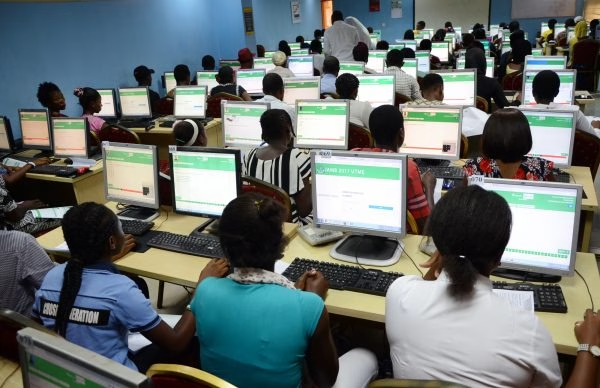In response to widespread complaints and alarming statistics from the 2025 Unified Tertiary Matriculation Examination (UTME), the Joint Admissions and Matriculation Board (JAMB) has scheduled a high-level review meeting for Thursday. The meeting aims to examine the circumstances surrounding the conduct and outcome of the exam, which has sparked public outrage over mass failure and technical irregularities.
A notice obtained by Sagamu Update confirmed that JAMB will convene with vice-chancellors, rectors, provosts, school principals, examiners, and technical experts to assess the examination process and respond to the growing dissatisfaction from candidates and stakeholders.
This development follows intense criticism and protests by candidates and their parents, many of whom allege discrepancies in the released results and technical glitches during the exam. According to the official notice, the review panel will include representatives from the All Nigeria Confederation of Principals of Secondary Schools (ANCOPSS), the National Association of Proprietors of Private Schools (NAPPS), the Computer Professionals Registration Council of Nigeria (CPRCN), the Educational Assessment and Research Network (EARN), and other tertiary education officials.
“In line with our commitment to transparency and public confidence in our operations, the board has approved the participation of key stakeholders in this review exercise to identify challenges and recommend appropriate solutions to avoid future occurrences,” the notice stated. It further clarified that the panel’s work will be carried out at no financial cost to the board.
The UTME serves as the main qualifying exam for entry into Nigerian universities, polytechnics, and colleges of education. It tests candidates in four subjects, including the compulsory Use of English.
According to JAMB’s data, out of 1,955,069 candidates who sat the exam, more than 1.5 million scored below 200 out of a total of 400 marks. Only 4,756 candidates (0.24%) scored 320 and above, while 7,658 candidates (0.39%) scored between 300 and 319—bringing the total number of candidates with scores above 300 to just 12,414 (0.63%).
Additionally, 73,441 candidates (3.76%) scored between 250 and 299, and 334,560 (17.11%) scored between 200 and 249. A majority of candidates—983,187 (50.29%)—scored between 160 and 199, considered the minimum threshold for admission into many tertiary institutions.
Lower performance brackets showed that 488,197 candidates (24.97%) scored between 140 and 159, while 57,419 (2.94%) scored between 120 and 139. Another 3,820 (0.20%) scored between 100 and 119, and only 2,031 candidates (0.10%) scored below 100.
The performance statistics have triggered outrage, with some candidates threatening legal action and others questioning the integrity of the process. Several have also demanded transparency in the scoring methodology used.
Reacting to the controversy, JAMB’s spokesperson, Dr. Fabian Benjamin, said the board had fast-tracked its annual post-examination audit, which typically reviews the registration, examination, and result release phases months after the exam.
“We are particularly focused on the unusual complaints coming from certain states across the country,” Benjamin said. “We are thoroughly investigating these claims and will take corrective actions if necessary.”
JAMB explained that during each UTME cycle, efforts are made to ensure every candidate is given a fair opportunity to take the exam. If technical disruptions occur, the board reschedules the exam for affected candidates.
JAMB Registrar, Prof. Ishaq Oloyede, defended the results, stating that the performance pattern for 2025 aligns with trends observed over the past 12 years.
“This is not an anomaly,” he said. “The results are consistent with previous years. In 2024, 76% of candidates scored below 200. In 2022, about 78% of 1.7 million candidates scored less than 200. And in 2021, only 803 out of 1.3 million scored above 300.”
Minister of Education, Dr. Tunji Alausa, also weighed in, noting that the low performance is indicative of the effectiveness of ongoing government efforts to curb examination malpractice and promote integrity in the admissions process.
However, discontent remains high. Thousands of candidates, including over 8,000 who formally submitted complaints, continue to allege technical issues and score inconsistencies. A social media user, @Pennyfabz, who scored 156 this year, expressed disbelief, claiming to have scored 285 in the previous UTME.
As the Thursday meeting approaches, expectations are high that JAMB and its stakeholders will address the issues comprehensively and introduce reforms to restore public trust in the examination system.

